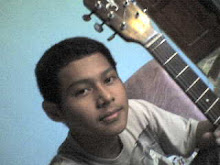Simple Future has two different forms in English: "will" and "be going to." Although the two forms can sometimes be used interchangeably, they often express two very different meanings. These different meanings might seem too abstract at first, but with time and practice, the differences will become clear. Both "will" and "be going to" refer to a specific time in the future.
Form “Will”
[will + verb]
Example : (+) I will go to your home tonight.
(-) I will not go to your home tonight.
(?) Will I go to your home tonight?
Form “Be Going To”
[am/is/are + going to + verb]
Example : (+) She is going to go to French next week.
(-) She is not going to go to French next week.
(?) Is she going to go to French next week?
USE 1 "Will" to Express a Voluntary Action
"Will" often suggests that a speaker will do something voluntarily. A voluntary action is one the speaker offers to do for someone else. Often, we use "will" to respond to someone else's complaint or request for help. We also use "will" when we request that someone help us or volunteer to do something for us. Similarly, we use "will not" or "won't" when we refuse to voluntarily do something.
Examples:
· I will send you the information when I get it.
· I will translate the email, so Mr. Smith can read it.
· Will you help me move this heavy table?
· Will you make dinner?
· I will not do your homework for you.
· I won't do all the housework myself!
· A: I'm really hungry.
B: I'll make some sandwiches.
· A: I'm so tired. I'm about to fall asleep.
B: I'll get you some coffee.
· A: The phone is ringing.
B: I'll get it.
USE 2 "Will" to Express a Promise
"Will" is usually used in promises.
Examples:
· I will call you when I arrive.
· If I am elected President of the United States, I will make sure everyone has access to inexpensive health insurance.
· I promise I will not tell him about the surprise party.
· Don't worry, I'll be careful.
· I won't tell anyone your secret.
USE 3 "Be going to" to Express a Plan
"Be going to" expresses that something is a plan. It expresses the idea that a person intends to do something in the future. It does not matter whether the plan is realistic or not.
Examples:
· He is going to spend his vacation in Hawaii.
· She is not going to spend her vacation in Hawaii.
· A: When are we going to meet each other tonight?
B: We are going to meet at 6 PM.
· I'm going to be an actor when I grow up.
· Michelle is going to begin medical school next year.
· They are going to drive all the way to Alaska.
· Who are you going to invite to the party?
· A: Who is going to make John's birthday cake?
B: Sue is going to make John's birthday cake.
USE 4 "Will" or "Be Going to" to Express a Prediction
Both "will" and "be going to" can express the idea of a general prediction about the future. Predictions are guesses about what might happen in the future. In "prediction" sentences, the subject usually has little control over the future and therefore USES 1-3 do not apply. In the following examples, there is no difference in meaning.
Examples:
· The year 2222 will be a very interesting year.
· The year 2222 is going to be a very interesting year.
· John Smith will be the next President.
· John Smith is going to be the next President.
· The movie "Zenith" will win several Academy Awards.
· The movie "Zenith" is going to win several Academy Awards.
USE 4 "Will" or "Be Going to" to Express a Prediction
Both "will" and "be going to" can express the idea of a general prediction about the future. Predictions are guesses about what might happen in the future. In "prediction" sentences, the subject usually has little control over the future and therefore USES 1-3 do not apply. In the following examples, there is no difference in meaning.
Examples:
- The year 2222 will be a very interesting year.
- The year 2222 is going to be a very interesting year.
- John Smith will be the next President.
- John Smith is going to be the next President.
- The movie "Zenith" will win several Academy Awards.
- The movie "Zenith" is going to win several Academy Awards.
IMPORTANT
In the Simple Future, it is not always clear which USE the speaker has in mind. Often, there is more than one way to interpret a sentence's meaning.
No Future in Time Clauses Like all future forms, the Simple Future cannot be used in clauses beginning with time expressions such as: when, while, before, after, by the time, as soon as, if, unless, etc. Instead of Simple Future, Simple Present is used.
Examples:
- When you will arrive tonight, we will go out for dinner. Not Correct
- When you arrive tonight, we will go out for dinner. Correct
ADVERB PLACEMENT
The examples below show the placement for grammar adverbs such as: always, only, never, ever, still, just, etc.
Examples:
- You will never help him.
- Will you ever help him?
- You are never going to meet Jane.
- Are you ever going to meet Jane?
ACTIVE / PASSIVE
Examples:
- John will finish the work by 5:00 PM. Active
- The work will be finished by 5:00 PM. Passive
- Sally is going to make a beautiful dinner tonight. Active
- A beautiful dinner is going to be made by Sally tonight. Passive





